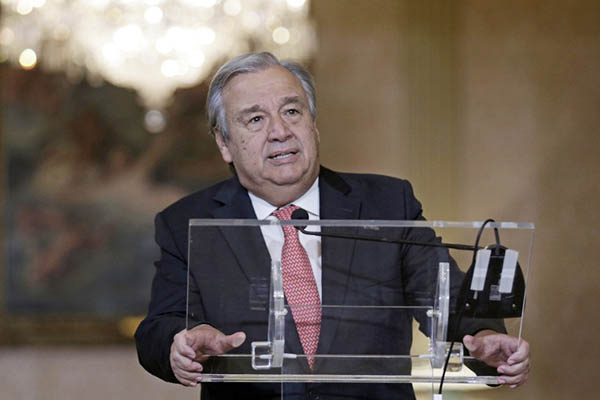
Jose Manuel Ribeiro—AFP
U.N. chief says bill that erodes two-state solution will have consequences for Israel.
A new Israeli law legalizing dozens of Jewish settler outposts in the Palestinian West Bank is in violation of international law, U.N. Secretary-General Antonio Guterres said on Tuesday.
Guterres said he “deeply regrets” the adoption of the bill which many governments worldwide see as the latest bid to erode the two-state solution to the Israeli-Palestinian conflict. “This bill is in contravention of international law and will have far reaching legal consequences for Israel,” Guterres said in a statement.
The U.N. chief again stressed the need to avoid “any actions that would derail the two-state solution” and said such issues must be resolved through negotiations.
Settlements in both the West Bank and east Jerusalem are viewed as illegal under international law and major stumbling blocks to peace as they are built on land the Palestinians want for their own state. The new law passed by the Israeli parliament late Monday allows the appropriation of private Palestinian land for Jewish settler outposts, a move the Palestinians said was a means to “legalize theft.”
Guterres joined an international outcry over the parliament’s decision, but the new U.S. administration of President Donald Trump has refused to comment. The law is expected to be challenged in court, with some Israeli officials expecting it to be struck down by the Supreme Court.
It would protect settlers against eviction from outposts discovered to have been built on private Palestinian lands. Palestinian owners will be compensated financially or with other land. It would apply to around 53 outposts as well as some houses within existing settlements, potentially legalizing more than 3,800 homes, according to anti-settlement NGO Peace Now.
The U.N. Security Council will discuss the dispute over Israeli settlements during a meeting on Feb. 15.
